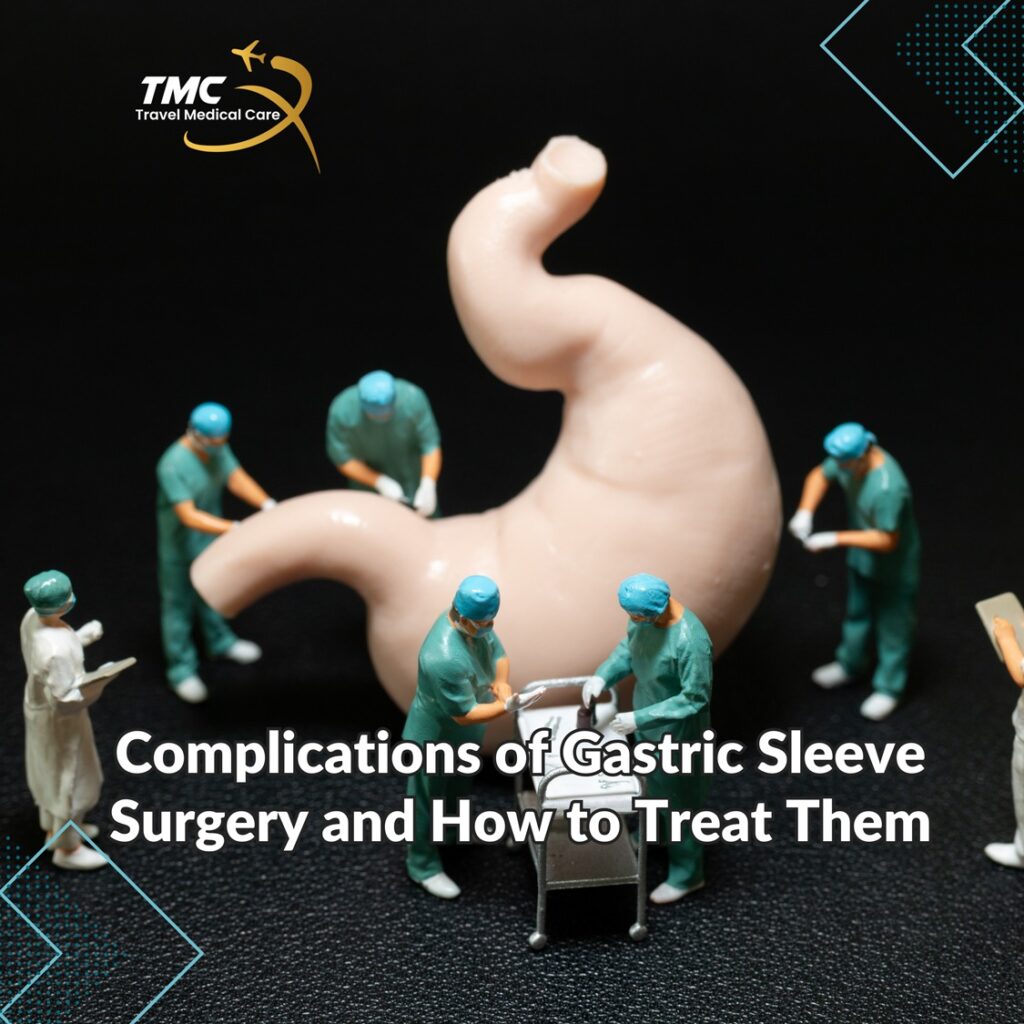In the journey toward lightness and freedom from the burdens of obesity, many people face both physical and psychological challenges that go beyond simply losing weight. The surgery is not just a procedure it is a transformative gateway carrying hope and a fresh opportunity for a new life. At every step of this path, dreams intersect with reality, revealing images of patience, determination, and resilience. Obstacles and complications may arise, appearing as sudden tests that demand pause and seriousness but they are not the end of the road.
In the world of modern medicine, solutions continue to evolve, and technologies advance, ensuring that no patient is left to face these challenges alone. Specialized medical support, psychological care, and meticulous follow-up form a safety net that surrounds you and accompanies you through every stage of recovery. This story is not only about surgery but also about the strength born from pain and the willpower that makes all the difference.
Ultimately, this journey is an inspiration for anyone striving to reclaim their health a call to believe that change is possible and that a new life is worth living with energy and vitality. With TMC’s comprehensive support, you will always find a caring hand and a trusted guide to lead you steadily toward recovery and success.

Most Common Complications of Gastric Sleeve Surgery
- Gastric Leak
After gastric sleeve surgery, a gastric leak can occur, one of the most serious complications. It happens when the stomach wall is not properly sealed after the excess part is removed, allowing acidic contents to leak into the abdominal cavity. This causes acute inflammation in the abdomen. Symptoms include sudden, severe abdominal pain, fever, heavy sweating, weakness, and a rapid heartbeat. This condition requires urgent medical intervention, often including antibiotics and sometimes additional surgery or drainage tube insertion.
- Internal Bleeding
Internal bleeding may result from damaged blood vessels during or after surgery. Symptoms include dizziness, pale skin, general weakness, rapid heartbeat, and low blood pressure, which may lead to fainting. This complication requires close medical monitoring and may involve blood transfusions or surgery in severe cases.
- Gastric Stenosis
Gastric stenosis is a condition where the remaining stomach tube becomes too narrow, making food passage difficult. Patients may experience trouble swallowing, frequent nausea, vomiting, and a feeling of fullness after eating even small amounts. This can lead to undesirable weight loss. Treatment typically includes endoscopic dilation or a diet adjustment focusing on soft foods.
- Vitamin and Mineral Deficiencies
Due to the reduced stomach size, absorption of key nutrients like vitamin B12, iron, and calcium decreases. Patients may experience fatigue, paleness, bone pain, hair loss, or even nerve issues such as tingling. Treatment involves taking dietary supplements and having regular checkups to adjust nutrient levels.
- Dumping Syndrome
This occurs when sugary foods move too quickly into the small intestine, causing symptoms such as nausea, sudden diarrhea, dizziness, sweating, and heart palpitations. A special diet with small, frequent meals and avoidance of sugars and fats is recommended.
- Digestive Problems
After surgery, some patients experience heartburn, acid reflux, constipation, or diarrhea due to changes in the digestive system. These are typically managed with antacids, increased water intake, high-fiber foods, and moderate physical activity.
Psychological Complications After Gastric Sleeve Surgery
The rapid and dramatic physical transformation following gastric sleeve surgery can have a strong impact on mental health. Some patients experience psychological difficulties such as:
- Depression and Anxiety: Patients may feel a loss of control or anxiety about sudden changes, coupled with social pressure and personal struggles in accepting their new body image.
- Distorted Body Image: Some may find it hard to accept their new appearance, leading to low self-esteem and a sense of discomfort or alienation from their body.
- Need for Continuous Psychological Support: Ongoing sessions with a psychologist are important to help patients adapt, manage anxiety or depression, and rebuild a positive self-image.
Treatment: Psychological support sessions, cognitive behavioral therapy, and support groups can play a significant role in overcoming this stage. It’s strongly advised to follow up with a psychologist or mental health specialist familiar with bariatric surgery patients.
Lifestyle-Related Complications
The change in stomach size and its effect on digestion requires a complete lifestyle overhaul. Some complications associated with this include:
- Malnutrition: May result from not following the recommended diet or consuming insufficient essential nutrients, leading to deficiencies.
- Gallstones: Rapid weight loss can increase the risk of gallstone formation due to increased cholesterol in bile.
- Osteoporosis: Calcium and vitamin D deficiencies from poor absorption or missed supplements can weaken bones and raise the risk of fractures.
Prevention: Stick to a balanced diet rich in essential nutrients, take supplements like vitamin B12, calcium, and vitamin D, and have regular medical checkups including blood tests to monitor nutrient levels.
Rare but Serious Complications
While rare, certain complications can be life-threatening and require immediate treatment:
- Blood Clots: These may form in the deep veins of the legs (deep vein thrombosis) or travel to the lungs, causing a pulmonary embolism a medical emergency.
- Bowel Obstruction: Can result from post-surgery adhesions that block food passage, leading to intense pain and nausea.
- Surgical Infection: May occur at the incision site or inside the abdomen, causing redness, swelling, pain, fever, and high inflammation markers.
Action: These conditions require urgent medical care. Clots are treated with anticoagulants, obstructions may need corrective surgery, and infections are addressed with antibiotics and specialized care.
Tips for Managing and Preventing Complications
- Regular Follow-Ups With the Medical Team: Routine checkups with your doctor are essential for early detection of potential complications. These visits allow for monitoring health progress, conducting necessary tests like blood panels or stomach imaging, and adjusting treatment plans or supplements as needed. They also provide an opportunity to discuss any physical or mental health concerns during recovery.
- Report Unusual Symptoms Immediately: Never ignore signs like intense pain, persistent nausea, fever, or unexpected digestive or weight changes. Early reporting allows for quick action, helping prevent serious issues that could require surgery or intensive treatment.
- Follow Dietary and Activity Guidelines: Adhering to your recommended dietary plan is crucial for maintaining nutritional balance and ensuring proper absorption of essential vitamins and minerals. It’s advised to eat small, frequent meals, avoid fried and fatty foods, and increase fiber intake. Regular physical activity, like daily light walking, boosts digestion, improves circulation, and lowers the risk of blood clots.
- Avoid Smoking and Alcohol: Both smoking and alcohol negatively affect healing and increase the risk of complications like delayed wound healing, nutrient malabsorption, and digestive issues. Quitting smoking and avoiding alcohol helps ensure a successful recovery and faster return to health.
TMC’s Role in Supporting Your Recovery Journey
TMC offers integrated care to make your recovery journey after gastric sleeve surgery comfortable and safe, including:
- Medical coordination with top hospitals and doctors for high-quality follow-up and care.
- Ongoing medical and psychological monitoring to help you adjust to physical and emotional changes.
- Personalized nutrition and fitness support to ensure healthy weight loss and improved physical fitness.
- Logistical support including reception, transportation, and comfortable accommodation near the hospital so your journey remains stress-free.
To Contact TMC:
- Phone: +201101000733
- Email: info@tmc.eg
Gastric sleeve complications can be challenging, but with awareness, prevention, and the right treatment, they turn into opportunities for success and a real improvement in quality of life. Don’t hesitate to consult your medical team, and start your journey with confidence, supported by TMC, toward a new, healthy life full of energy and vitality.
